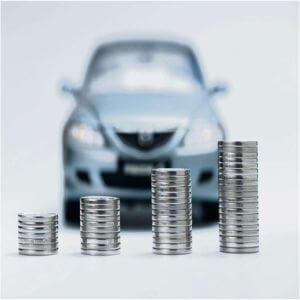Introduction
When it comes to purchasing a vehicle in Germany, understanding the various auto financing options available is crucial for making an informed decision. Whether you’re an expatriate or a native, navigating the German auto financing landscape can be complex. This comprehensive guide aims to provide an in-depth overview of the most prevalent types of auto financing in Germany, such as Autokredit, Leasing, and Ballonfinanzierung. We’ll explore the pros and cons, interest rates, and other vital factors that could influence your decision-making process.
Keywords:
- Autokredit
- Leasing
- Ballonfinanzierung
- German auto financing
- Interest rates
- Schufa score
- Anzahlung
- Laufzeit
Autokredit: The Traditional Car Loan
What is Autokredit?
Autokredit is the German term for a traditional car loan. It’s a straightforward financing option where you borrow a lump sum to purchase a car and pay it back in monthly installments over a predetermined period, known as the “Laufzeit.”
Pros and Cons of Autokredit
Pros:
- Fixed interest rates make it easier to budget.
- Ownership of the car from day one.
- No mileage restrictions.
Cons:
- Requires a down payment, known as “Anzahlung.”
- Higher monthly payments compared to other financing options.
Interest Rates in Autokredit
Interest rates for Autokredit are generally fixed, which means they won’t change over the loan term. This predictability makes it easier to budget your monthly expenses. However, your Schufa score, a German credit rating, will significantly influence the interest rate you’re offered.
Leasing: Renting Over Owning
What is Leasing?
Leasing is akin to renting a car for an extended period, usually between two to four years. At the end of the lease term, you have the option to buy the car or return it and start a new lease.
Pros and Cons of Leasing
Pros:
- Lower monthly payments.
- The option to switch cars frequently.
- Maintenance is often included in the contract.
Cons:
- You don’t own the car.
- Mileage restrictions apply.
- Potential for additional charges at the end of the lease for wear and tear.
Interest Rates in Leasing
Leasing doesn’t involve interest rates in the traditional sense. Instead, Germans refer to a “Leasingfaktor,” a multiplier used to calculate your monthly payments. The lower the Leasingfaktor, the better the deal.
Ballonfinanzierung: Balloon Financing
What is Ballonfinanzierung?
Ballonfinanzierung is a type of loan where you make smaller monthly payments during the loan term and a large “balloon” payment at the end. This final payment is often equivalent to the car’s residual value.
Pros and Cons of Ballonfinanzierung
Pros:
- Lower monthly payments during the loan term.
- Option to own the car at the end by paying the balloon payment.
Cons:
- Large lump sum payment at the end.
- Higher overall cost due to interest accrued on the balloon payment.
Interest Rates in Ballonfinanzierung
Like Autokredit, Ballonfinanzierung usually comes with fixed interest rates. However, these rates can be higher than those in traditional car loans due to the increased risk for the lender.
Drei-Wege-Finanzierung: Three-Way Financing
What is Drei-Wege-Finanzierung?
Drei-Wege-Finanzierung is a flexible financing option that combines elements of both leasing and balloon financing. At the end of the term, you can choose to return the car, refinance the balloon payment, or pay it off entirely.
Pros and Cons of Drei-Wege-Finanzierung
Pros:
- Flexibility in end-of-term options.
- Lower monthly payments during the loan term.
Cons:
- Complexity in contract terms.
- Potential for higher costs depending on your end-of-term decision.
Interest Rates in Drei-Wege-Finanzierung
Interest rates can be either fixed or variable, depending on the lender and your creditworthiness. A variable rate might offer lower initial payments but can increase over time.
Additional Factors to Consider
Schufa Score
Your Schufa score will significantly impact your eligibility for different financing options and the interest rates you’ll be offered. A higher score generally leads to better terms.
Down Payment (Anzahlung)
A down payment can influence both your interest rates and monthly payments. The larger the down payment, the less you’ll need to finance, which can lead to better terms.
Loan Duration (Laufzeit)
The duration of your loan can also impact your monthly payments and the overall cost of the loan. Longer terms mean lower monthly payments but higher overall costs due to interest.
Conclusion
Navigating the German auto financing landscape can be a complex task, but it’s essential for making an informed decision. Whether you opt for a traditional Autokredit, explore the benefits of Leasing, or consider other options like Ballonfinanzierung or Drei-Wege-Finanzierung, each has its own set of advantages and disadvantages. Factors like your Schufa score, down payment, and loan duration will also play a crucial role in determining what’s best for you. Take your time to weigh these options carefully, and consult financial advisors or auto finance experts to guide you through the intricacies of the German auto financing landscape.

